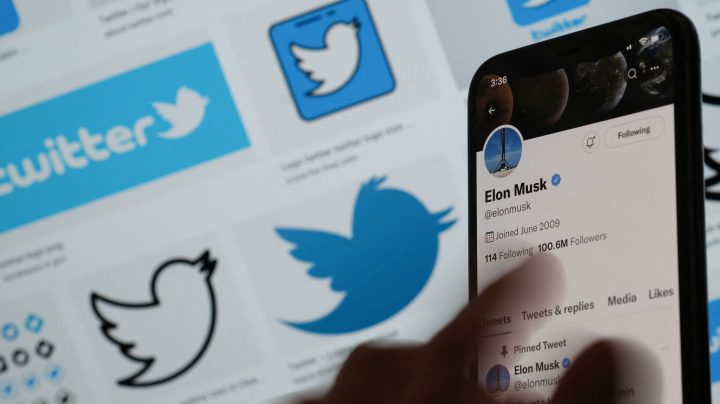
To tweet or not to tweet? How brands are wrestling with Elon Musk’s Twitter
To tweet or not to tweet? How brands are wrestling with Elon Musk’s Twitter

Yelitsa Jean-Charles really didn’t put that much thought into one of the most successful marketing campaigns she ever launched.
“I was just hanging out on my air mattress in my new apartment waiting for furniture, and I just sent this tweet out,” said Jean-Charles, the 28-year-old founder of Healthy Roots Dolls, a company that makes dolls designed to give young Black girls a toy that looks more like them.
While waiting for her real bed to arrive, Jean-Charles tweeted side-by-side photos of her headshot and one of her dolls. The doll’s curly hair looked just like hers.
She captioned the tweet, “The Founder, The Product”, a twist on a popular meme.
“I think I went about my business that day,” said Jean-Charles. “And I was like, ‘Why is my phone blowing up?'”
Her tweet got more than 815,000 likes and 107,000 retweets. And her business took off.
“We got featured in the Oprah Magazine, we got a Forbes feature,” Jean-Charles said. “A Target buyer reached out, and we ended up getting into Target the next year.”
Jean-Charles said she now spends about nine hours a day on social media. During weekly meetings with her marketing team, Twitter gets its own conversation.
Since Elon Musk completed his $44 billion acquisition of Twitter in late October, those conversations about Twitter are now daily. Her team talks about what they see other brands talking about off Twitter.
“So are we tweeting today? Like, are we supposed to just keep talking? Because not only is all this negative energy going on on Twitter, but it’s also Q4, which is when a lot of businesses are expecting to perform, so it’s like, ‘What do we do?'”
Musk-era Twitter is putting brands in a tough spot.
If you leave the platform because you think he’s emboldening hate speech, you abandon an audience you’ve spent lots of time and resources building, said Stacy Smollin Schwartz at Rutgers Business School.
But if you stay and Twitter devolves, there’s a possibility your brand gets tarnished.
“A white extremist post is happening next to my post for Oreos, and someone takes a screenshot of that and it looks like I’m endorsing that, that’s bad,” Smollin Schwartz said.
Alex Birsh decided the risk was just too high for his company to keep tweeting.
“We felt that what was happening on Twitter, hateful things, we felt we could not participate,” Birsh said.
Birsh is the chief operating officer of Playbill, the Broadway theater magazine. Playbill publicly announced it would stop tweeting a few weeks after Musk’s takeover.
Playbill’s Twitter account had more than 400,000 followers and accounted for more than 100,000 visitors to its website every month, according to Birsh.
But in the theater community that Playbill caters to, getting off Twitter had its own branding upside.
“We have honestly gotten just applause,” Birsh said.
Playbill’s decision is the exception, not the rule. While many brands like General Mills and General Motors stopped or reduced paid advertising, most are staying on the platform. Because while certain people on the left have threatened mass exodus, the overall audience can’t seem to quit.
“They may be leaving Twitter in moments in their soul, but based on the data, that is not what we are seeing,” said Tania Yuki, who tracks digital media at the analytics company Comscore.
Among the tens of thousands of brands Yuki analyzes, tweets are down about 2% to 3% since the Musk takeover. But engagement — retweets, quote tweets, likes — that’s up about the same amount.
“Usually, when you see a platform in trouble, you’ll see more posting and then less interaction per piece of creative, so this is actually really healthy,” Yuki said.
But for brands that have long struggled with nailing that delicately cheeky Twitter tone, Musk may be the final straw.
“You know, it’s sort of like at some point when you’re in a party and people are all deep in conversation, and you’re walking in and you’re trying to break into it, and it gets harder and harder as the evening progresses,” Yuki said.
Yelitsa Jean-Charles said she’s still enjoying the party.
She and Healthy Roots Dolls are staying on Twitter. She said she really hasn’t seen anything too upsetting in her feeds yet.
But she does draw a line at one new feature: Paying $8 a month for the privilege of that blue “verified” check mark. It’s always felt kind of elitist, and now there’s another downside.
“I don’t want people to think that I support the new management and the way that they’ve approached the platform and the actions that they’re taking,” Jean-Charles said.
Of course, if Twitter ultimately follows the path of MySpace or Friendster, brands can still turn to Instagram and Facebook and TikTok, those other social media platforms that have never caused divisiveness or misinformation or groupthink or really any other problems whatsoever … right?
There’s a lot happening in the world. Through it all, Marketplace is here for you.
You rely on Marketplace to break down the world’s events and tell you how it affects you in a fact-based, approachable way. We rely on your financial support to keep making that possible.
Your donation today powers the independent journalism that you rely on. For just $5/month, you can help sustain Marketplace so we can keep reporting on the things that matter to you.

















